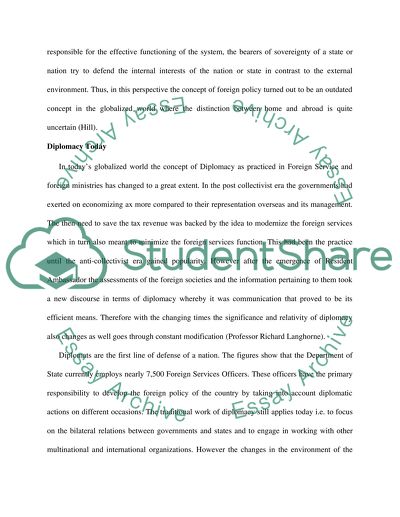Cite this document
(“If diplomacy is correctly defined as being distinct from foreign Essay - 1”, n.d.)
If diplomacy is correctly defined as being distinct from foreign Essay - 1. Retrieved from https://studentshare.org/history/1589792-if-diplomacy-is-correctly-defined-as-being-distinct-from-foreign-policy-which-diplomatic-skills-and-qualities-are-essential-in-any-foreign-service
If diplomacy is correctly defined as being distinct from foreign Essay - 1. Retrieved from https://studentshare.org/history/1589792-if-diplomacy-is-correctly-defined-as-being-distinct-from-foreign-policy-which-diplomatic-skills-and-qualities-are-essential-in-any-foreign-service
(If Diplomacy Is Correctly Defined As Being Distinct from Foreign Essay - 1)
If Diplomacy Is Correctly Defined As Being Distinct from Foreign Essay - 1. https://studentshare.org/history/1589792-if-diplomacy-is-correctly-defined-as-being-distinct-from-foreign-policy-which-diplomatic-skills-and-qualities-are-essential-in-any-foreign-service.
If Diplomacy Is Correctly Defined As Being Distinct from Foreign Essay - 1. https://studentshare.org/history/1589792-if-diplomacy-is-correctly-defined-as-being-distinct-from-foreign-policy-which-diplomatic-skills-and-qualities-are-essential-in-any-foreign-service.
“If Diplomacy Is Correctly Defined As Being Distinct from Foreign Essay - 1”, n.d. https://studentshare.org/history/1589792-if-diplomacy-is-correctly-defined-as-being-distinct-from-foreign-policy-which-diplomatic-skills-and-qualities-are-essential-in-any-foreign-service.


